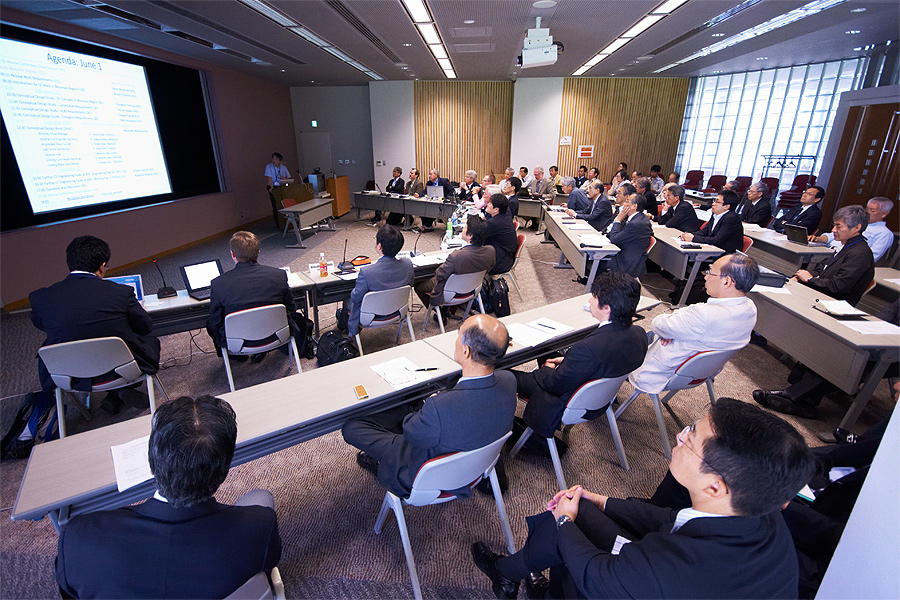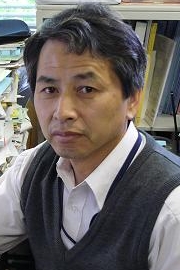Director's Corner
26 August 2010
Discussing change at the Baseline Assessment Workshops
Today's issue features a Director's Corner from Akira Yamamoto, Project Manager for the Global Design Effort.
In cooperation with the KEK Linear Collider Office, the ILC GDE Project Managers are organising the first in a series of Baseline Assessment Workshops (BAW) to be held at KEK from 7 to 10 September 2010. The workshop is organised in the week preceding the LINAC-10 conference being held in Tsukuba and we hope it is convenient to maximise participation in both.
 The Asian single tunnel design CFS review took place at KEK in spring. The single tunnel design is one of the main topics of the first baseline assessment workshop in September. Image: Nobu Toge. The Asian single tunnel design CFS review took place at KEK in spring. The single tunnel design is one of the main topics of the first baseline assessment workshop in September. Image: Nobu Toge. |
The Baseline Assessment Workshops are a result of our Accelerator Design and Integration (AD&I) discussions of last spring, and from a recent review process of the Strawman Baseline Design 2009 (SB2009) proposed by the Project Managers. Among the outcomes of this process was the need to more clearly communicate changes in the design to the physics/detector community, and to understand and track the proposed changes relative to the ILC RDR baseline. The BAW are an attempt to achieve these goals, by having open and deep discussions on the technical proposals, by improving the communication of our proposals to the ILC accelerator and physics/detector communities, and improving their feedback to us.
The motivation of the SB2009 proposal was largely to prepare and improve the ILC machine design as we approach the Technical Design Report (TDR) in 2012, and to maintain our proposal within the cost constraints we have all been given. As discussed here recently in other columns, cost containment is a critical factor in the success of any current worldwide science project — we have learnt the lessons of other projects, and apply those lessons to our own.
The objectives and goals of BAW-1 are to:
- assess the technical design update proposal in SB2009, particularly with respect to the Main Linac SCRF and RF technologies
- review necessary R&D plans and goals in the next portion of the technical design phase (TDP-2),
- discuss impact across system interfaces, cost, and schedule, and
- work toward consensus in the GDE and Physics/Detector groups
BAW-1 will cover the two topics over four days: (1) "Single-tunnel ML design and High Level RF System (HLRF)" on the first two-days, and (2) "ML accelerator field gradient for SCRF cavities" following on 9 and 10 September.
The tunnel and HLRF system design discussion are closely linked, as the two HLRF approaches under study, the Klystron Cluster System (KCS) and the Distributed RF System (DRFS), each have a preferred tunnel construction. Any evaluation of the two designs, beyond a straight technical evaluation, is intricately tied to the civil engineering effort. In the second half of the workshop, we will focus our discussions on the superconducting cavity gradient, including recent R&D results and planning for how those results, and upcoming results including cryomodule tests, will feed into our assumptions of RF power requirements and overheads/operating margins. With a successful workshop we will have openly discussed the status, how our R&D plan supports the TDP-2 effort, and developed practical goals and a plan as we head for 2012.
We look forward to many participants from both the accelerator and the physics communities in order to share our technical status and help inform our discussions, as we develop and refine the ILC machine design under the leadership of the GDE Director and the management.
-- Akira Yamamoto
